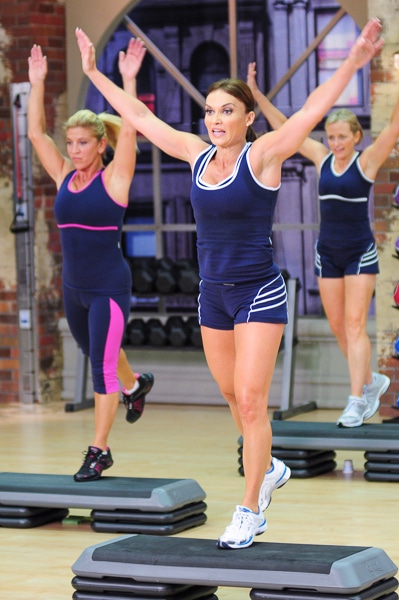
Exercise and the Risk of Hypertension
If you have a family history of hypertension, regular exercise is one of the best things you can do to lower your risk. Research shows that you can lower your blood pressure as much as 10% through exercise alone. That’s significant when it comes to cardiovascular health.
The type of exercise you do matters. Resistance training has an abundance of benefits, and there are even some studies showing it modestly lowers blood pressure too, but aerobic exercise has the edge when it comes to blood pressure control. A large meta-analysis published in the Annals of Internal Medicine found that aerobic exercise reduces blood pressure both in normal people and those with hypertension.
To keep hypertension at bay, according to one large study, your best bet is to develop a high level of aerobic fitness. This study suggests that people who have the highest level of fitness reduce their risk of hypertension the most. That means higher intensity aerobic exercise such as interval training that challenges your cardiovascular system more may be more protective than a leisurely jog. On the other hand, more leisurely exercise has other benefits such as reducing stress, another risk factor for heart disease.
One interesting finding based on a study carried out at the University of Toronto is 25% of people are exercise non-responders, meaning aerobic exercise doesn’t significantly lower their blood pressure. How can you tell if you’re a responder? If your blood pressure drops by 5 or more points after an exercise session, you’ll probably experience a longer-term reduction in blood pressure once you’ve increased your fitness level.
How Does Aerobic Exercise Lower Blood Pressure?
Exercise reduces blood pressure by decreasing resistance in your arteries so there’s less resistance to blood flow. Aerobic exercise causes cells called endothelial cells in the walls of blood vessels to produce more nitric oxide, a gas that causes blood vessels to relax. Unfortunately, the effects of nitric oxide are short-lived, but it can be stored in blood vessels and in your heart as nitrite and in the form of chemicals called nitrosothiols where it can again be converted to nitric oxide. This not only lowers blood pressure but reduces your risk for heart attacks and stroke.
How Long Does It Take for Exercise to Lower Your High Blood Pressure?
If you’re a responder, your blood pressure will drop from 5 to 19 points after an exercise session. This is the acute response to an exercise that lasts only for a short period of time. It can take from 1 to 5 weeks to see a more sustained drop in blood pressure. The key is to be consistent with your workouts.
The Bottom Line?
Three out of four people will experience sustained drops in blood pressure with regular aerobic exercise, especially moderate to high-intensity exercise. This reduction may delay or even prevent hypertension in some people. Plus, if you have borderline high blood pressure, you may be able to control it through exercise and lifestyle changes alone but talk to your doctor first. To sustain the reduction, keep exercising. If you stop, you’ll lose the blood pressure lowering benefits. But why would you want to stop? Exercise does too many good things for your health and for your appearance. Make it a lifelong habit.
References:
Annals of Internal Medicine. 2002, 136(7):493-503.
Medicine and Science in Sports and Exercise. (2002) 44: 1644-1652.
Theheart.org website. “Physically Active Avoid Hypertension, but Only if Fitness is High”
Medicine and Science in Sports and Exercise. (2012). 44: 1644-1652.
Related Articles By Cathe:
Does a High-Sodium Diet Increase the Risk of Heart Disease?
5 Foods that Help Lower Blood Pressure
4 Things You Should Know about Exercising with High Blood Pressure

